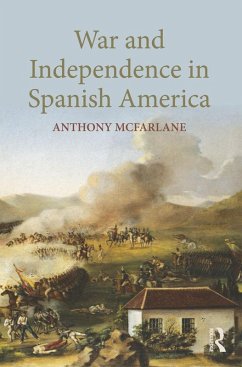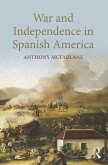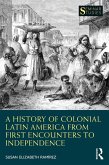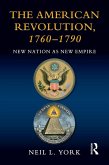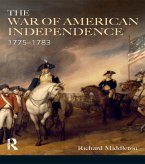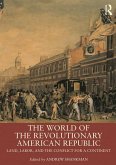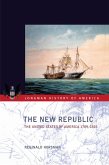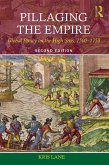War and Independence in Spanish America provides a unified account of war in Spanish America during the period after the collapse of the Spanish government in 1808. McFarlane traces the courses and consequences of war, combining a broad narrative of the development and distribution of armed conflict with analysis of its characteristics and patterns. He maps the main arenas of war, traces the major campaigns by and crucial battles between rebels and royalists, and places the military conflicts in the context of international political change. Readers will come away with a fully realized understanding of how war and military mobilization affected Spanish American societies and shaped the emerging independent states.
Dieser Download kann aus rechtlichen Gründen nur mit Rechnungsadresse in A, B, BG, CY, CZ, D, DK, EW, E, FIN, F, GR, HR, H, IRL, I, LT, L, LR, M, NL, PL, P, R, S, SLO, SK ausgeliefert werden.
-CHOICE
Anthony McFarlane has written a distinguished modern history of the revolutions for independence in Spanish America, adding a new factor, war and armed conflict, to the traditional themes of political and social change. He takes the study of war beyond campaigns, battles and armies into a wider terrain and shows that war and military mobilization profoundly affected society and conditioned the process of state building in the aftermath of empire. The book takes a leading place among the histories of Spain's loss of empire and the formation of a new Spanish America.
- John Lynch, author of Simón Bolívar and the Age of Revolution
McFarlane has produced a stirring narrative of insurgency, counter-insurgency, and grand campaigns that never loses sight of its political context and implications. The result is an impressively controlled description and analysis of a prolonged conflict with profound consequences for global history.
- Sir John Elliott, author of Empires of the Atlantic World: Britain and Spain in America, 1492-1830
An important study of wars that had more long-term significance than those of Napoleon. A deft approach, skilfully linking war, politics and society. Deserves wide attention.
- Jeremy Black, author of An Introduction to Global Military History
This magnificent narrative of the processes of independence between 1808 and 1826 across Spanish America fills a hole that has gaped in the English-language historiography ever since the end of the armed conflicts that brought formal Spanish colonialism to an end in the republics that today are Argentina, Bolivia, Chile, Colombia, Costa Rica, Ecuador, El Salvador, Guatemala, Honduras, Mexico, Nicaragua, Panama, Paraguay, Peru, Uruguay, and Venezuela, as well as large swathes of the present territory of the United States of America.
-Matthew Brown, Univeristy of Bristol in War in History

